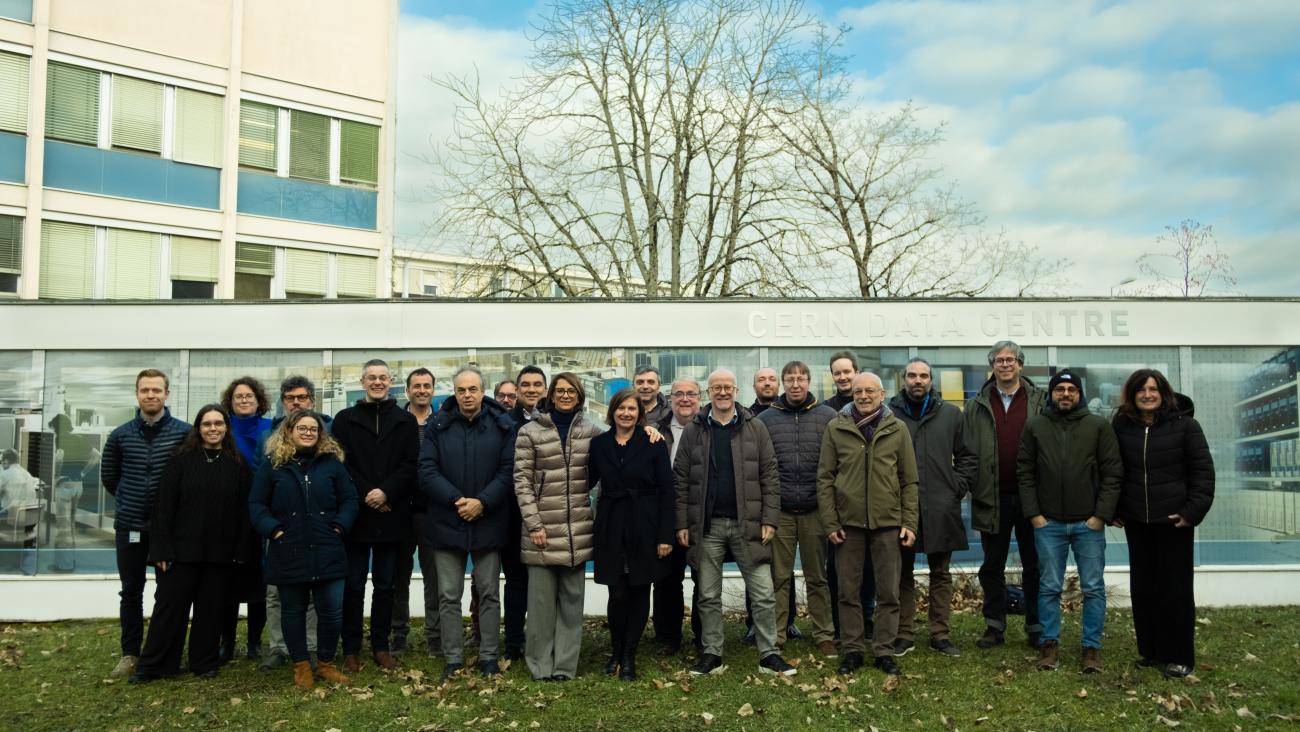Last week, the EU’s SPECTRUM project team met at CERN for a three-day gathering focused on an exabyte-scale data federation and compute continuum. Funded by Horizon Europe, SPECTRUM was launched in 2024 to produce a Strategic Research, Innovation and Deployment Agenda (SRIDA) and a Technical Blueprint for Europe’s next generation computing infrastructure. With data volumes set to explode in fields such as High-Energy Physics and Radio Astronomy, the project brings together major scientific organizations, such as CERN and SKAO, and e-infrastructure providers to help Europe meet its fast-growing data-processing needs.
Hosted by CERN openlab at the CERN IT Amphitheatre, representatives from CERN, EGI, CNRS, OCA, INFN, ASTRON, Neovia Innovation, FZJ SURF and CINECA, discussed how to coordinate efforts, identify common challenges, and set priorities for exascale computing. Exascale computing systems—capable of over 1018 floating-point operations per second (FLOPS)—represent a significant advancement in High-Performance Computing (HPC). To harness this power for scientific and industrial breakthroughs, participants stressed the need for robust policies, shared plans, and a flexible, energy-efficient infrastructure.
CERN leads the SPECTRUM work package dedicated to defining the Technical Blueprint for a compute and data continuum spanning HPC, cloud, AI, and emerging fields like quantum computing. This blueprint will cover topics such as high-end data processing, analysis, and logistics, including cybersecurity, storage, and cost-effective resource allocation. By uniting Europe’s top infrastructure providers, SPECTRUM aims to ensure seamless data sharing and sustainable computing capabilities across all scientific domains.
“As supercomputers advance toward exascale, there’s a growing interest in evaluating HPC resources for diverse scientific applications,” says Maria Girone, head of CERN openlab. “SPECTRUM’s blueprint and SRIDA will drive the innovations, investments, and collaborations essential for data-intensive science. Our discussions at CERN enabled us to exchange ideas, build fresh perspectives, and strengthen cross-disciplinary collaboration—critical steps to keep Europe at the forefront of global research.”
Group photo by Alex Lasa Lamarca (CERN)

